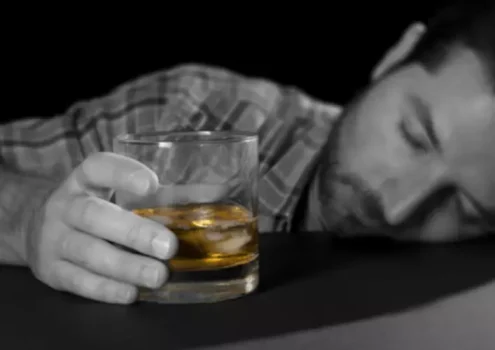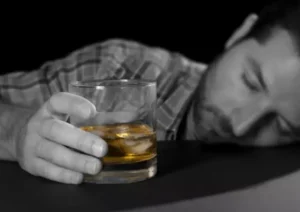If you suspect you or someone else may be experiencing withdrawal, seek medical attention immediately. Alcohol shakes aren’t just a personal struggle; they affect families, jobs, and more. Landmark Recovery’s expert medical team provides compassionate care tailored to each individual’s needs. Whether persistent shakes or a loss of control, recovery starts with a single step.
Symptoms of Alcoholism
- This process temporarily restores homeostasis, or chemical balance, in an effort to counteract the impact of long-term alcohol use on the brain.
- Alcoholism can also lead to liver disease, which, in its advanced stages, can cause a characteristic flapping or shaking of the hands known as asterixis.
- Alcohol shakes, or tremors, are a symptom of alcohol withdrawal that may occur in people when they quit drinking or significantly reduce their alcohol consumption.
- Hepatic encephalopathy develops when the liver cannot filter toxins from the blood that affect the brain cells.
- They usually appear between one and three days after your last drink and are usually most intense four to five days after your last drink.
- They occur due to alcohol’s effects on the body and how it interacts with the nervous system.
If you’re concerned about your risks for developing alcohol use disorder, it’s a good idea to talk to a healthcare provider. They can help you understand your risks and guide you on what to do about them. Family support plays a critical role in the recovery process from alcohol shakes, providing emotional stability, understanding, and encouragement that can significantly enhance the effectiveness of treatment. Families can help create a supportive home environment that minimizes stress and alcohol exposure, both of which are crucial for individuals recovering from alcohol dependency. Alcohol withdrawal triggers shakes due to the sudden decrease in alcohol intake after a period of heavy and prolonged use, causing the nervous system to become hyperactive.
Can delirium tremens be prevented?
That’s why some alcoholics wake up shaky in the morning and need a drink to feel steady. But when a chronic drinker suddenly quits drinking, the brain continues to function as if alcohol were present. In this amped-up state, an individual will begin to feel the symptoms of withdrawal, such as tremors, anxiety, sweating, hyperactivity, an elevated heart rate, nausea and vomiting. If you are thinking about alcoholic shakes quitting drinking, talk to your healthcare provider.
Symptoms and Signs of Alcohol Shakes
- She has implemented a lot of new protocols for the operations of these areas to ensure the clients are receiving the highest quality of care that we are able to provide.
- The body’s reaction to alcohol’s absence can be painful and dangerous, highlighting the importance of seeking medical support.
- Shaking or tremors are one of the common symptoms experienced during alcohol withdrawal.
- These changes in brain chemistry are part of the reason why long-term heavy drinkers often don’t appear drunk.
- Just be cautious when starting a new medication since it’s very easy to get addicted to withdrawal medications, especially when you’re quitting alcohol.
She has strong communication skills, compassion for others, and a drive to provide the best services we can to each client and their family throughout their experience with Elevate. For the past 9 years, she additionally has been overseeing the detox area, health services, and office of family support. She has implemented a lot of new protocols for the operations of these areas to ensure the clients are receiving the highest quality of care that we are able to provide.
Alcohol Shakes and Tremors
When a person regularly consumes alcohol, the body adjusts to its depressant effects by increasing the activity of excitatory neurotransmitters. Once alcohol is removed, these neurotransmitters remain in an overactive state, leading to symptoms such as tremors or shakes. Once the alcoholic is successfully detoxed from alcohol, the long-term work of recovery and sobriety can begin. In fact, most detoxification centers are affiliated with an array of treatment centers to which their patients can be transferred for intensive psychological therapy. Certain withdrawal symptoms may persist, including high anxiety and cardiovascular issues.
Start your recovery now
Some people can develop a severe form of alcohol withdrawal known as delirium tremens, or DTs, that can cause a severe shaking or shivering. Other symptoms of DTs include hallucinations, agitation, high blood pressure, fever and even seizures. Because delirium tremens symptoms can be fatal, it’s often recommended that individuals detoxing from alcohol undergo a medically monitored alcohol detox. Aftercare is a vital component of the recovery process for individuals experiencing alcohol shakes, as it provides continued support and resources necessary for long-term sobriety and health. These programs are designed to help individuals navigate the challenges of reintegrating into daily life without reliance on alcohol, minimizing the risk of relapse and the recurrence of alcohol shakes. To understand what causes alcoholic shakes, you first have to understand what happens in the body when you drink alcohol.
If you have alcohol use disorder and want to stop drinking, talk to a healthcare provider. They can help you find resources, care and support that’ll help you reduce alcohol intake safely, and also give you the best chance at a positive outcome. They can recommend alcohol rehabilitation programs, specialist providers, support groups and more. DTs is possible when someone with alcohol use disorder, especially moderate or severe alcohol use disorder, suddenly stops drinking entirely. Alcohol shakes, also known as alcohol withdrawal tremors, are a common symptom experienced during alcohol withdrawal.






